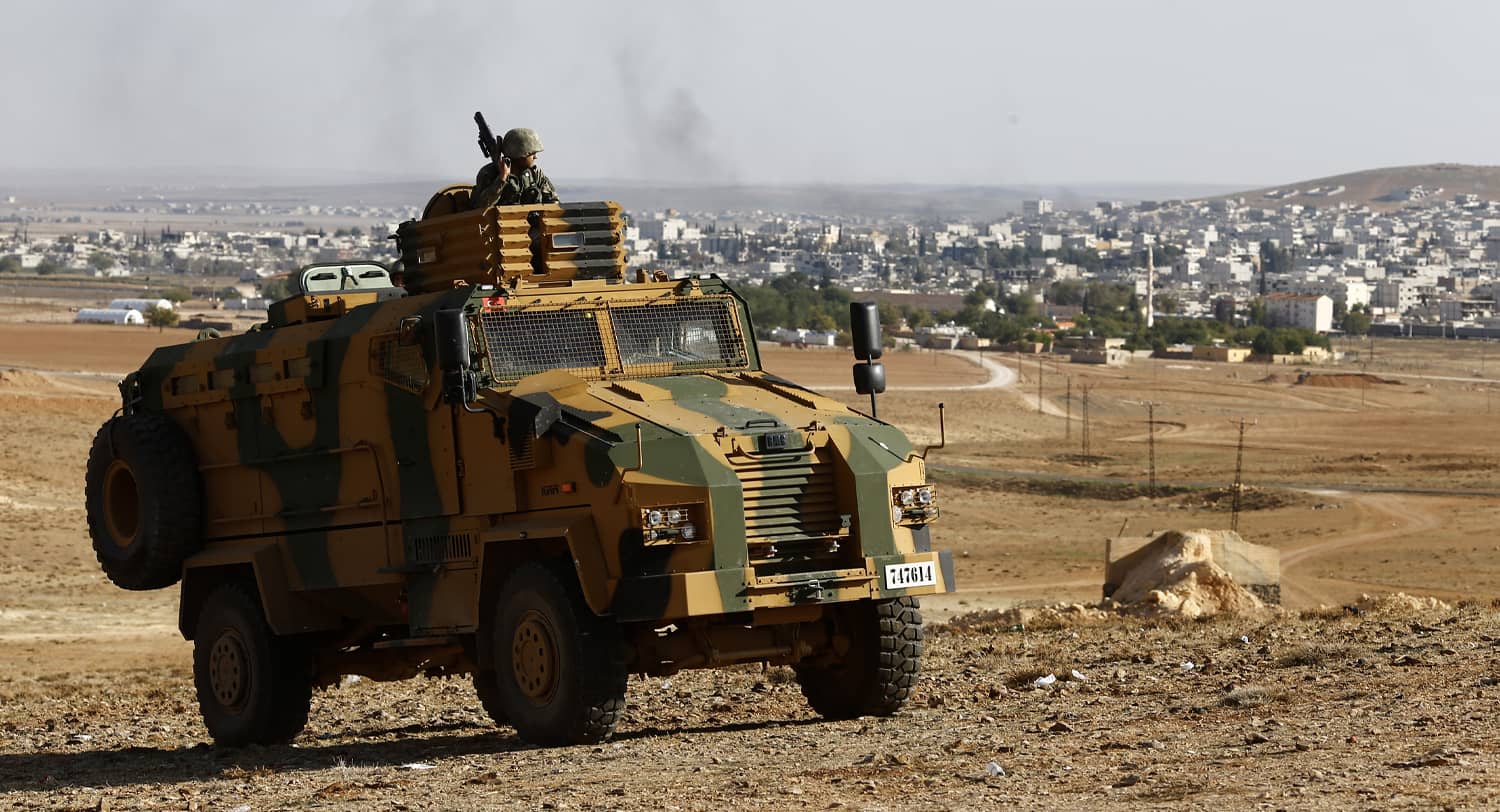On June 29, 2014, Abu Bakr al-Baghdadi, the leader of the Islamic State in al-Sham (ISIS), was recorded on video speaking at the al-Nuri Mosque in Mosul, Iraq. (“Al-Sham” is the traditional Arabic name for the Levant.) He declared himself to be the caliph or divinely inspired absolute ruler of an Islamic state.
ISIS had risen from the ashes of al-Qa’ida in Iraq, bringing together Syrian jihadists released by Asad’s regime, former members of Saddam Hussein’s army in Iraq, and Sunni tribal fighters from across rural Iraq. In Syria, ISIS joined other jihadist groups in fighting Asad. As its battlefield victories mounted, ISIS broke with al-Qai’da in declaring an Islamic state across eastern Syria and northern Iraq, with al-Raqqa in Syria as its capital.
For the Obama administration, the central challenge was clear: degrade ISIS and destroy the terrorist threat it posed. For Ankara, however, the enemy remained Bashar al-Asad. Erdoğan viewed Asad’s regime – not ISIS – as the greater threat to regional stability, resulting in Turkey’s permissive attitude toward jihadist actors.
As Erdoğan saw it, ISIS might be extreme, but it was a useful battering ram to topple the Asad regime. The risk of blowback was downplayed.
Turkey had already forged ties with al-Qa’ida’s branch in Syria, Jabhat al-Nusra, as detailed earlier in this series of reports. Turkey permitted al-Nusra fighters to stage attacks from Turkish territory, including from the Hatay province in spring 2014. Al-Nusra later acknowledged that Turkey had done them a “big favor.” Unlike the Free Syrian Army, which Ankara had once fostered but which soon collapsed under corruption and infighting, al-Nusra was effective, capable of seizing and holding territory, including parts of Aleppo.
Turkey by mid-2014 became a recruitment hub and transit point for ISIS. Estimates suggested that between 600 and 1,000 Turkish citizens had joined the Caliphate. The New York Times reported that ISIS offered Turkish recruits $150 per day to fight. Newsweek and Hurriyet reported on ISIS recruitment drives in Turkey’s conservative urban neighborhoods. In 2013, some 30,000 foreign fighters are estimated to have joined the Caliphate by crossing into Syria via Turkey. Brett McGurk, the US Special Envoy to the coalition to defeat ISIS, even alleged that Turkey had harbored the caliph, Abu Bakr al-Baghdadi.
In January 2014, President Obama likened ISIS to a junior varsity basketball team. But Turkey was treating ISIS as a potentially useful tool. When ISIS laid siege to the Kurdish-majority border town of Kobani in September 2014, the Turkish military remained passive spectators. Only when Abdullah Öcalan, the jailed leader of the PKK (then in peace negotiations with Ankara), threatened to end talks did Turkey grudgingly allow a handful of Kurdish fighters to cross into Syria and help defend the town.
Turkey’s entanglement with ISIS also had economic motives. After capturing Syrian oil fields, ISIS sold smuggled oil to Turkish buyers. Middlemen transported the crude across the border while Turkish authorities turned a blind eye. ISIS sold $1–2 million worth of oil daily to Turkish smugglers, according to estimates, though it also smuggled smaller amounts of oil into Iran via northern Iraq.
Hussain Allawi of the Iraq Energy Institute noted that ISIS smuggled “about 210 oil tank trucks into Turkey and other places every day.” Turkish parliamentarian Ali Ediboğlu (from the opposition CHP) confirmed in June 2014: “$800 million worth of oil that ISIS obtained from regions it occupied this year is being sold in Turkey… They transfer the oil to Turkey and parlay it into cash.”
There were also occasional frictions between Turkey and ISIS. In June 2014, ISIS stormed the Turkish consulate in Mosul, taking 49 Turkish citizens hostage. While the Turkish intelligence agency MIT claimed it rescued the hostages in a covert operation, subsequent reports revealed a prisoner swap: 180 jihadists were exchanged for the hostages. After the deal, US Deputy National Security Advisor Ben Rhodes stated that the Obama administration hoped “to see Turkey play an active role with our coalition in taking the fight to ISIS.” That role never materialized.
Indeed, Newsweek reported that ISIS fighters claimed to have “full cooperation with the Turks.” That cooperation extended to weapons transfers. In January 2014, Turkish gendarmes stopped three trucks in Adana province carrying rockets, ammunition, and explosives destined for Syria. The receiving end, across the border, was controlled by ISIS and the hardline group Ahrar al-Sham.
The Turkish government insisted the trucks belonged to MIT and were carrying ‘humanitarian aid’ to ethnic Turkmen in Syria. But paperwork told a different story. Erdoğan later confirmed MIT’s role, but not the trucks’ contents. The prosecutors and gendarmes who inspected the trucks were fired, prosecuted for revealing state secrets, and jailed on terrorism charges.
In the end, Turkey’s gamble unraveled. ISIS didn’t confine its role to the Syrian civil war. It metastasized into a regional and global menace. Whatever tactical benefits Turkey hoped to gain from tolerating the flow of fighters, weapons and money to ISIS were buried under the rubble of al-Raqqa.
And Erdoğan’s Turkey, once the “model Muslim democracy” of Western allies, saw its reputation marred by its flirtation with the caliphate.
This is Part IV of a series of reports by Sinan Ciddi on Turkey’s role in Syria.

